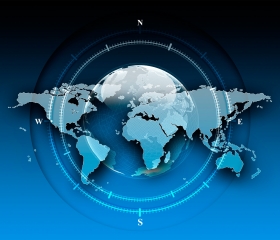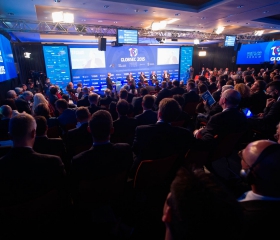Relations between Russia and the European Union are in deep crisis – perhaps the most serious crisis since the end of the Cold War. As the Russian Federation’s former foreign minister, I particularly regret this bleak state of affairs as along with my European counterparts I myself invested much time and effort in building a stronger Russia-EU partnership, with all its political, social, economic and humanitarian dimensions.
Relations between Russia and the European Union are in deep crisis – perhaps the most serious crisis since the end of the Cold War. As the Russian Federation’s former foreign minister, I particularly regret this bleak state of affairs as along with my European counterparts I myself invested much time and effort in building a stronger Russia-EU partnership, with all its political, social, economic and humanitarian dimensions.
Many of our past plans and hopes now look like pipe-dreams that are remote and seemingly irrelevant to today’s grim realities. I am sure that many in Europe share my frustrations and concerns, although there is little sense in just being disappointed and pessimistic. We should instead analyse the mistakes and blunders of the past in order to reveal the opportunities of the future.
The most graphic manifestation of the deep gap that has emerged between Brussels and Moscow is, of course, the situation in and around Ukraine. We can debate endlessly about who is to blame for this situation and whether it could have been avoided. Both Russia and the European Union have, in my view, contributed to the escalation of Ukrainian problems, and so both should bear their fair share of responsibility for the unfortunate developments in that country since autumn 2013. As I see it, though, Ukraine has not been the main cause of the Russia-EU crisis; rather it has been a catalyst of the more fundamental rifts that had emerged between Moscow and Brussels over the last few years. In short, the Russia-EU partnership has not worked out in the way that had been anticipated some 10-15 years ago.
So the question must be, what went wrong? Unless we look back into our past, we cannot realistically plan our future. Twelve years ago, we agreed at the 2003 Russia-EU summit in Saint Petersburg to proceed with the so called ‘four spaces’ in our co-operation. I was personally involved in drafting these four spaces, and I still believe that it was a very important achievement in the relationship. Later, these four spaces were to be complimented by the EU-Russia Roadmaps supposed to define specific goals, schedules, and benchmarks in each of the spaces.
Since then, we have not made a lot of progress. In many ways we lost ground and not gained it. We failed to sign a new EU-Russia Partnership agreement to replace the old one that had expired long ago. We couldn’t move to a visa-free regime between Russia and the Schengen zone, and were unable to reconcile our differences on the EU’s ‘third energy package’. Even on less controversial matters like research co-operation, environmental protection and transportation, our progress was modest, to put it mildly.
That said, I would not want to downplay the efforts of the committed men and women in both EU and in Russia who did much to bring co-operation to a new level. Yet the overall balance sheet isn’t impressive. It is true that our economic co-operation continued to grow until 2014, as did the scale of EU companies’ investments in Russia and the number of joint ventures. But the relationship’s institutional framework failed to catch up with these new economic realities, so the gap between businessmen and the politicians grew wider and wider and then turned into an abyss during the crisis over Ukraine.
Why didn’t we succeed in using the last 15 years to their full extent? Why could the private sector on both sides not lobby for a new level of political partnership between Russia and EU? One of the most common explanations is that on both sides politicians were distracted by such other priorities and events as the global economic crisis of 2008-2009, the conflict in the Caucasus, complications in the eurozone, the relentless rise of China, the Arab Spring, the U.S.-EU transatlantic trade and investment negotiations (TTIP) and so on. There may be some truth in this explanation, but what does that prove? It only tells us that for both the European Union and Russia their mutual relations seemed of secondary importance, and could therefore easily be shelved or even sacrificed for the sake of more central and more urgent needs.
The Ukrainian crisis has thus become a very explicit manifestation of the fragility of our relations. Both sides pursued their own policies toward Ukraine without any co-ordination, or at least consultations, with one another. The question of the “European choice” for Ukraine was raised only in the old “zero sum game” logic of the Cold War. I am myself convinced that with the necessary efforts on both sides we could have avoided the Ukrainian tragedy – at any rate in the dramatic form it has finally taken.
Rather than emphasising the differences in our approaches and blaming each other, we should have looked for what unites us in this extraordinary situation. Above all, neither the European Union, nor Russia has anything to gain from Ukraine becoming a ‘failed state’ in the centre of the European continent. On the contrary, such a development would create a whole range of fundamental threats and challenges to everybody in Europe, not to mention the countless tragedies and suffering it means for the Ukrainian people. It will now be much more difficult to restore the relationship between Russia and Europe than it was only a year ago, but we have no alternative to limiting the damage and moving ahead.
A lot has been said about the European institutional deficit that was clearly demonstrated by the Ukrainian crisis. And it’s certainly true that the many European and Euro-Atlantic organisations and mechanisms that were specifically designed to prevent or to resolve crises failed to do so – with the qualified exception of OSCE, the Organization for Security and Co-operation in Europe. Instead, the crisis gave birth to new forms of international co-operation like the so-called “Normandy process”. This new format may look extremely fragile and shaky, but it at least demonstrates our common ability to make tangible progress under even the most difficult circumstances.
Where, then, should we go from here? In my opinion, five urgent steps are needed if we are to start repairing the badly damaged EU-Russia relationship.
First, we must prevent any further escalation of the military conflict in the centre of Europe. The Minsk agreements have to be implemented in full by all the sides without any exceptions or procrastinations. All violations of the agreements by rebels in the east or by the Kiev authorities should be brought to light and properly investigated without resort to bias or double standards.
Second, we have to enhance and to broaden the Normandy format. Aside from sporadic meetings at the very top or at foreign ministers’ level we need a permanent high-level Contact Group in Kiev that will work on a day-to-day basis with the parties to the conflict. It is critically important that U.S. should be included in the Contact Group to avoid any misunderstandings or failures of communication across the Atlantic.
Third, Russia and the West should refrain from hostile and inflammatory rhetoric that fuels public mistrust and hatred. The vicious spiral of today’s propaganda war has to be stopped and reversed – at least at official level, if we do not want to turn the current crisis into a long-term confrontation that will divide our common continent for years, if not decades, to come.
Fourth, both sides have to invest political energy and capital in rescuing what can still be saved from the best days of EU-Russia co-operation. So far as is possible, we should maintain our joint projects on education and research and in culture and civil society, environmental protection and climate change. We should try to preserve our successful trans-border co-operation, contacts between Russian and European regions and between ‘twinned’ cities. These are the seeds of the future renaissance of the EU-Russia relationship.
Fifth, the time has clearly come to explore opportunities for closer and more intensive contacts between the European Union and the Eurasian Economic Union (EEU). The EU has little to lose by reaching out to this neighbouring integration project, while in terms of influencing the emerging EEU’s standards, mechanisms, procedures and modes of operation, the rewards could be handsome.
I don’t want to imply that we should be getting back to “business as usual” by ignoring the deep political divisions between Moscow and Brussels. That approach wouldn’t work even if both sides were prepared to stick by it. But one of the positive side-effects of this crisis is that there is today less hypocrisy and political correctness between Moscow and Brussels. Unless we learn the lessons of this crisis, mistrust, instability and losses in both east and west will continue to multiply.
Fist published by the Europe’s World Summer 2015.






